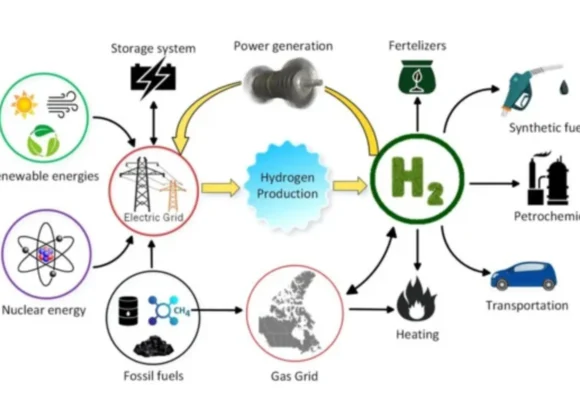In the current digital era, safeguarding personal information is crucial.. With the rise of cyber threats and data breaches, organizations must take the necessary steps to safeguard the information of their customers and clients. This is where the role of a Data Protection Officer (DPO) comes into play.
What is a Data Protection Officer?
An organization’s appointed person in charge of managing data protection policies and guaranteeing adherence to data protection rules and regulations is known as the data protection officer. The primary role of a DPO is to act as a point of contact between the organization, data subjects, and regulatory authorities.
Responsibilities of a Data Protection Officer
As a Data Protection Officer, one must have a deep understanding of data protection laws and regulations, such as the General Data Protection Regulation (GDPR). The DPO is responsible for advising the organization on its data protection obligations, monitoring compliance with data protection laws, conducting data protection impact assessments, and acting as a liaison with data protection authorities.
Why is a Data Protection Officer Important?
With the increasing amount of personal data being collected and processed by organizations, having a dedicated Data Protection Officer is crucial. A DPO helps to ensure that data protection policies and procedures are in place, data breaches are handled appropriately, and that data subjects’ rights are protected.
Benefits of Having a Data Protection Officer
Having a Data Protection Officer can help organizations avoid costly data breaches and fines for non-compliance with data protection laws. A DPO can also enhance customer trust and loyalty by demonstrating a commitment to protecting their personal data.
How to Become a Data Protection Officer
To become a Data Protection Officer, one must have a strong background in data protection laws and regulations, as well as experience in implementing data protection strategies. Many organizations require DPOs to have certifications such as Certified Information Privacy Professional (CIPP) or Certified Information Privacy Manager (CIPM).
Competencies and Requirements for Data Protection Officers
A Data Protection Officer should possess excellent communication and analytical skills, attention to detail, and a strong understanding of data protection principles. It is also important for DPOs to stay up-to-date on the latest developments in data protection laws and regulations.
Conclusion
In conclusion, in today’s data-driven society, the position of a Data Protection Officer is essential. By ensuring that organizations comply with data protection laws and regulations, DPOs play a crucial role in protecting the personal data of individuals. If you are passionate about data protection and privacy, a career as a Data Protection Officer may be the right path for you.
Learn about the important role of a Data Protection Officer and why they are essential for protecting personal data in today’s digital age.
FAQ’s
Q. Do all companies need a data protection officer?
The need for a data protection officer (DPO) largely depends on the nature and scale of data processing activities carried out by a company. As per the General Data Protection Regulation (GDPR), it is mandatory for certain organizations to appoint a DPO, specifically those involved in large-scale systematic monitoring of individuals or processing special categories of data on a large scale. Even if not mandated by law, having a DPO can be beneficial for any company handling sensitive data to ensure compliance with data protection regulations, mitigate risks, and enhance data security measures. Ultimately, each company should assess its data processing activities to determine if appointing a DPO is necessary to safeguard the rights and privacy of individuals.
Q. What are the duties of protection officer?
Protection officers play a vital role in ensuring the safety and security of individuals, properties, and establishments. Their duties typically include monitoring surveillance equipment, patrolling designated areas, and responding to security incidents. Protection officers are responsible for enforcing rules and regulations, deterring criminal activity, and providing assistance during emergencies. They may also be required to maintain detailed logs and reports of their activities, as well as collaborate with law enforcement agencies when necessary. Ultimately, protection officers serve as a visible deterrent to potential threats and strive to create a secure environment for all stakeholders.
Q. What is DPO income?
A Data Protection Officer’s (DPO) income typically varies depending on various factors such as the organization’s size, industry, location, and the DPO’s level of experience and qualifications. In general, DPOs are well-compensated professionals due to the critical role they play in ensuring compliance with data protection regulations and safeguarding personal data. According to industry reports, the average salary for a DPO ranges from $80,000 to $150,000 per year, with potential for bonuses and additional perks. As data privacy becomes increasingly important in the digital age, DPOs are in high demand, leading to competitive salaries and benefits in the market.
Q. Is DPO an employee
A Data Protection Officer (DPO) is not just an employee; they play a crucial role in ensuring that an organization complies with data protection regulations and safeguards individuals’ personal data. A DPO is responsible for advising on data protection impact assessments, monitoring compliance with data protection laws, and serving as a point of contact for data subjects and regulatory authorities.
While a DPO may be an employee of the organization, they are required to perform their duties independently and without interference. This independence is essential to ensure that the DPO can effectively carry out their responsibilities and act in the best interests of data subjects. Overall, the role of a DPO is vital in helping organizations uphold privacy rights and maintain trust with their stakeholders.
Q. Who needs a data protection officer?
A data protection officer (DPO) is a crucial role within an organization, especially for entities handling sensitive personal data. Anyone who collects, processes, or stores personal data of individuals within the European Union must appoint a DPO as mandated by the General Data Protection Regulation (GDPR). This includes businesses, government agencies, non-profits, or any organization that deals with personal information on a large scale.
The DPO ensures compliance with data protection laws, assists in implementing data protection policies, conducts risk assessments, and serves as the point of contact for supervisory authorities and data subjects. Having a DPO in place not only helps organizations adhere to legal requirements but also demonstrates a commitment to safeguarding individuals’ privacy rights and promoting trust in handling their data.




